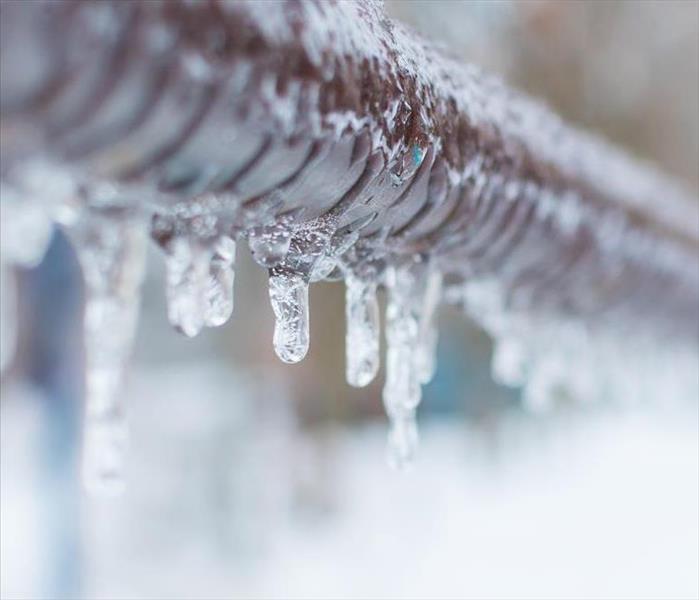Prepare now to stay safe during winter storms
1/13/2022 (Permalink)
According to the Red Cross each year, hundreds of Americans are injured or killed by exposure to cold, vehicle accidents on wintry roads, and fires caused by the improper use of heaters. Prepare now so you can stay safe during blizzards and other winter storms!
Water has a unique property in that it expands as it freezes. This expansion puts tremendous pressure on whatever is containing it, including metal or plastic pipes. No matter the strength of a container, expanding water can cause pipes to break.
Pipes that freeze most frequently are:
- Pipes that are exposed to severe cold, like outdoor hose bibs, swimming pool supply lines, and water sprinkler lines.
- Water supply pipes in unheated interior areas like basements and crawl spaces, attics, garages, or kitchen cabinets.
- Pipes that run against exterior walls that have little or no insulation.
How to Protect Pipes From Freezing:
Before the onset of cold weather, you can do a few things to protect your pipes from freezing by following these recommendations:
- Drain water from swimming pool and water sprinkler supply lines following manufacturer's or installer's directions. Do not put antifreeze in these lines unless directed. Antifreeze is environmentally harmful, and is dangerous to humans, pets, wildlife, and landscaping.
- Remove, drain, and store hoses used outdoors.
- Add insulation to attics, basements and crawl spaces. Insulation will maintain higher temperatures in these areas.
- Check around the home for other areas where water supply lines are located in unheated areas. Look in the garage, and under kitchen and bathroom cabinets. Both hot and cold-water pipes in these areas should be insulated.
- Consider installing specific products made to insulate water pipes like a "pipe sleeve" or installing UL-listed "heat tape," "heat cable," or similar materials on exposed water pipes.
If your home or business experiences frozen or burst pipes call us immediately: 440-564-7266 or visit http://www.SERVPROgeaugacounty.com






 24/7 Emergency Service
24/7 Emergency Service
